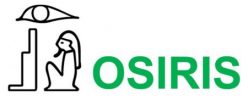Behavioural economics research: Discrete choice surgical decision making experiments
This Project uses a discrete choice experiment to understand how people use information, and the different trade-offs people make, in making big decisions such as having high risk surgery.
Individuals make choices based on anticipated costs (both financial and personal) and consequences that may be incorrect. This framework allows us to assess the difference between patients’ expected health outcomes when accurate information is provided, and the expected health outcome when patients have imperfect knowledge of the costs and consequences of surgery
Participants will consider scenarios where they contemplate a choice between surgical, non-surgical and conservative treatment approaches to a hypothetical illness. Participants will be randomly assigned to two groups. One group will choose treatment based on their anticipated costs and consequences of the interventions, having been provided only with information on the nature and purpose of the procedure and potential immediate complications (current standard information set). The other group will receive detailed accurate information on the costs and consequences of the treatments for a typical high-risk patient (proposed extended information set to be used in OSIRIS intervention).
These results will contribute to our shared decision making theory, and will provide an evidence base to support the testing and implementation of the decision support intervention.
